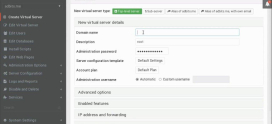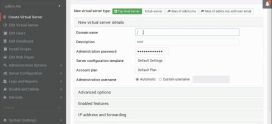
The Role of Big Data in WooCommerce Hosting
Are you feeling overwhelmed by the sheer volume of information available today? Navigating the world of e-commerce can be tricky, especially with technological terms and data analytics dominating the conversation. If you’ve ever wondered how to harness the power of data to improve your online store’s performance, you’re not alone. Many small business owners struggle with understanding how technology can make their lives easier. Fortunately, you’re here, and that’s the first step in discovering how you can use big data to your advantage in WooCommerce hosting.
We all know that running an online shop comes with its own set of challenges. From managing inventory and processing payments to ensuring a seamless customer experience, it can be a lot to juggle! Just when you think you have everything under control, you receive unexpected spikes in traffic, leading to potential downtime and frustrated customers. But here’s the good news: you have a powerful ally in big data. It can play a transformative role in relieving these pressures while helping you thrive in a competitive market.
In this article, we’ll explore how big data can enhance your WooCommerce hosting experience. With practical insights and tips, we’ll guide you through common challenges while reassuring you that there are solutions at your fingertips. So, grab a cup of coffee, sit back, and let’s delve into how big data can revolutionize your online shop!
Understanding Big Data: What Is It?
So, what exactly do we mean by “big data”? Essentially, big data refers to large volumes of information that can be analyzed to reveal patterns, trends, and associations within a specific context. Think of it as a massive puzzle: each piece represents a bit of information that, when combined correctly, paints a comprehensive picture of your business landscape.
The Benefits of Big Data in E-commerce
Now, you might be wondering, “Why should I care about big data?” Here’s the deal: leveraging big data can lead to improved decision-making, personalized customer experiences, and enhanced operational efficiency. Let’s break down some of the key benefits:
- Personalized Marketing: By analyzing customer behavior and preferences, you can tailor your marketing strategies to meet their needs, leading to higher conversion rates.
- Inventory Management: Data analytics can help predict inventory needs based on historical trends, ensuring you never run out of popular products.
- Improved Customer Experience: Understanding customer behaviors can enhance their shopping experience, making them more likely to return.
- Risk Management: Data can help identify potential issues before they arise, allowing you to address them proactively.
Integrating Big Data with WooCommerce Hosting
When you combine WooCommerce with big data, the potential for growth is immense. Here’s how you can effectively integrate these two powerful tools.
Choosing the Right Hosting Provider
Your journey begins with selecting a reliable hosting provider. Not all hosting services handle big data equally. Consider providers like DarazHost, known for its robust infrastructure that can easily handle large datasets while providing uptime reliability.
Utilizing Analytics Plugins
WooCommerce offers various analytics plugins that can help gather and analyze data. These tools enable you to track user behavior, sales patterns, and conversion rates effortlessly. For example, using WooCommerce Google Analytics Integration can provide a wealth of insights right at your fingertips.
Data-Driven Decision Making
Once you have access to valuable data, using it to inform your decisions is crucial. Analyze sales trends, customer preferences, and inventory levels regularly. This data-driven approach will lead to more effective strategies for marketing and sales.
The Importance of Data Security
With great data comes great responsibility. Protecting your customers’ information is not only ethical but also critical for maintaining your reputation. Ensure that your hosting provider offers strong security features, including SSL certificates, firewalls, and regular security updates.
Regular Data Backups
Establish a regular data backup routine to safeguard your information. Many hosting services, like DarazHost, provide automated backup solutions to ensure that your data is safe and easily recoverable.
Creating Customer Profiles
Big data allows you to create detailed customer profiles based on their shopping habits and interactions with your store. This segmentation enables personalized marketing campaigns that resonate more with your audience. Think of it as inviting a friend over and knowing just what they love to eat!
Cross-Selling and Upselling Opportunities
Using data analytics to understand purchase behavior can help you pinpoint effective cross-selling and upselling opportunities. For example, if a customer buys a camera, suggesting accessories based on other customers’ purchases can dramatically boost your sales.
Enhancing User Experience with Data Insights
Data not only helps you know your customers better but also shows you how to enhance their shopping experience on your website. By analyzing behaviors such as cart abandonment rates and browsing patterns, you can optimize your website layout and product offerings.
Mobile Optimization
As more customers shop via smartphones, understanding mobile behavior through data analytics can inform your mobile optimization efforts. Ensure your WooCommerce site is tailored for mobile users, leading to a smoother shopping experience and potentially higher conversion rates.
Real-Time Data Analysis
Timeliness is key in e-commerce. Utilizing real-time data analysis allows you to act quickly in response to changing customer behaviors or market conditions. Being reactive can mean the difference between seizing a sales opportunity or losing potential customers.
Collaboration with Other Systems
Big data is most effective when integrated with other business systems. By collaborating with your CRM and ERP solutions, you can provide better customer service and streamline your operations.
Measuring Success Through KPIs
Establish key performance indicators (KPIs) to measure success and track progress. Understanding which metrics matter most to your business will help you fine-tune your strategies for growth.
Common KPIs to Track
- Conversion Rate: This measures the percentage of visitors who make a purchase.
- Customer Acquisition Cost: Understand how much you spend to acquire new customers.
- Average Order Value: Analyze the average amount spent per transaction.
Staying Ahead of the Competition
With the vast amount of data available today, using it effectively can set you apart from the competition. Continuous analysis and adaptation to market trends are essential for staying relevant and thriving in a crowded space.
Conclusion
Embracing big data in your WooCommerce hosting strategy can undoubtedly lead to greater efficiency, improved customer experiences, and increased sales. By understanding its benefits and implementing the right tools, you can transform your online store into a data-driven success story.
Remember, you’re not alone in this journey. Take it one step at a time, and don’t hesitate to reach out for support when needed. Now that you understand the power of big data, what’s stopping you from integrating it into your e-commerce strategy?
FAQs
What is big data in the context of WooCommerce hosting?
Big data refers to the large volumes of information that can be processed and analyzed to inform business decisions within a WooCommerce environment.
How can big data improve my online shop’s performance?
Utilizing big data can enhance personalized marketing, improve inventory management, and optimize customer experiences, ultimately boosting sales.
What tools can help analyze big data in my WooCommerce store?
Plugins like Google Analytics for WooCommerce and customer analytics tools can help gather and analyze data effectively.
Are there security concerns with using big data?
Yes, it’s crucial to ensure a proper data security framework is in place to protect customer information and comply with regulations.
How do I start incorporating big data into my business strategy?
Begin by choosing the right hosting provider, implementing data analysis tools, and regularly reviewing insights to inform your strategies.
Your path in the e-commerce world doesn’t have to feel overwhelming any longer. By understanding and utilizing big data, you can create a more successful and personalized shopping experience for your customers. What’s your next step? Let’s make it happen together!









